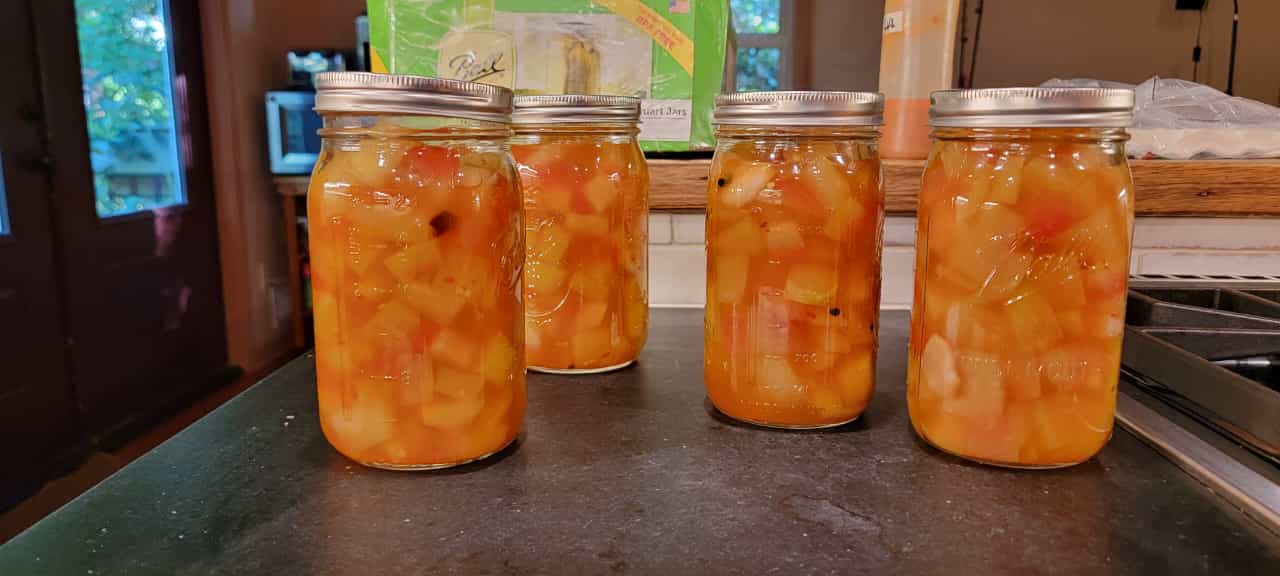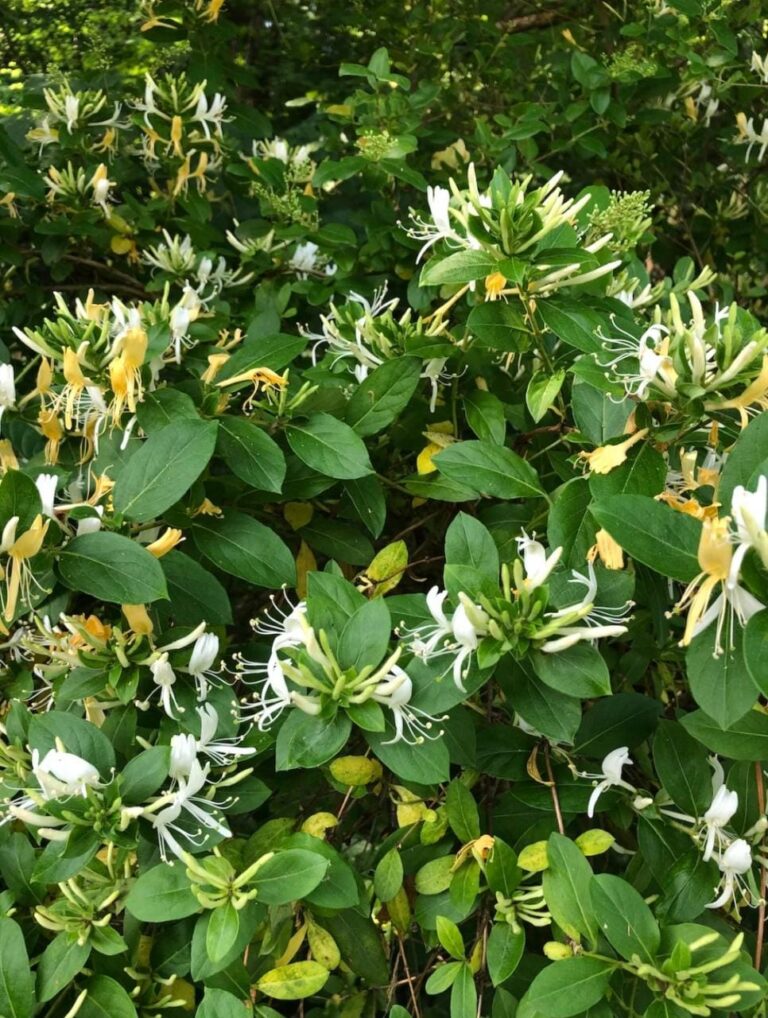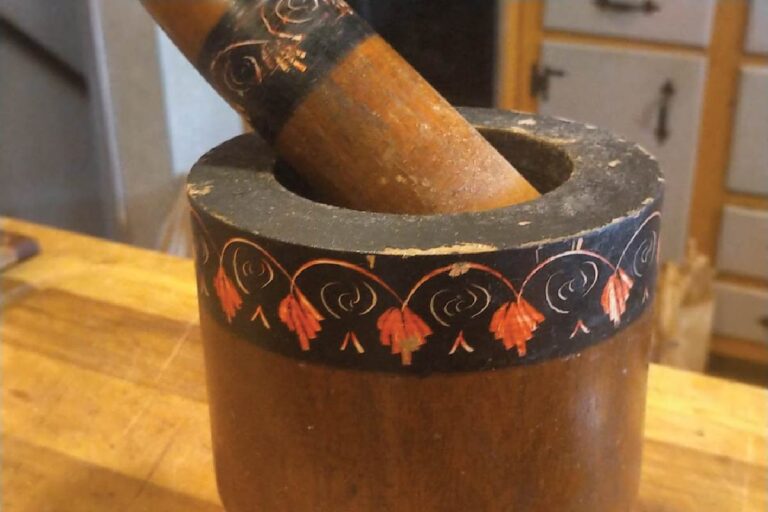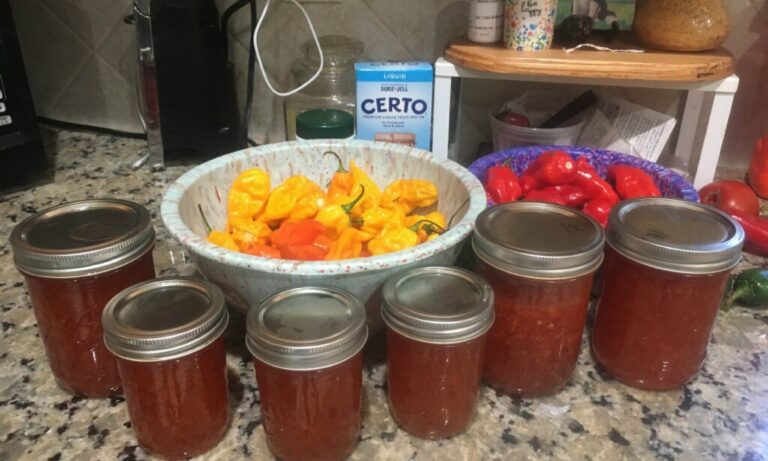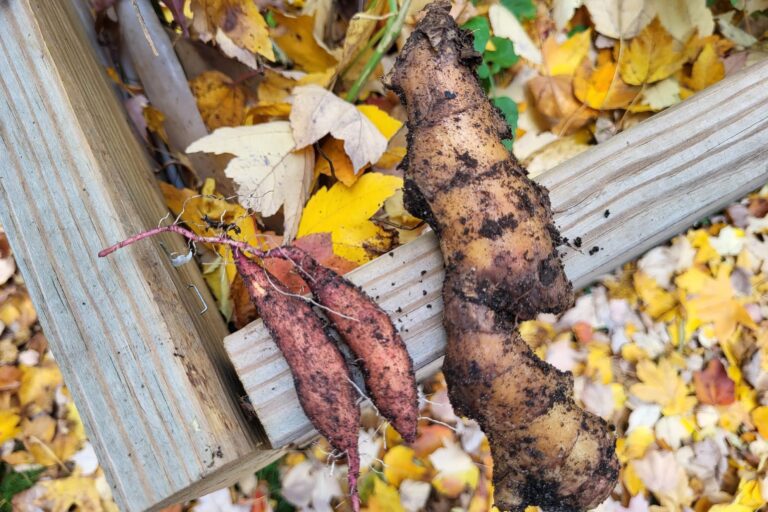A Guide to Watermelon Rind Pickling
During summer you may find yourself with an abundance of watermelon and their rinds. Instead of throwing them away or putting them in the compost, why not use some portion of these often-ignored scraps into a delectable treat? Pickling is not only a sustainable approach to reducing food waste, but it is also an excellent way to retain summer flavors. I love to play with flavors for that matter I like fermentation, making sauces, and dehydrating my homegrown fruits and vegetables. There are some other recipes like hot sauce with Utri pepper, and mustard sauce are also published in the sauce & spice section of this blog. My friend Bob also shared his recipe for Habanero jelly in the same section.
Today we’ll walk you through the process of pickling watermelon rinds so you may enjoy the taste of this summer delight all year as a side dish, as a complementary addition to your salads or even to add exotic sides to your BBQ.
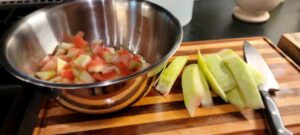
Ingredients You Will Need
Watermelon rind: Make use of the rind of a fresh, ripe watermelon. Remove as much pink flesh as you can, leaving only the white sections. The green part will be surely the part for your compost. It would be ideal to cut the white part into 1-inch squares.
Brine Solution: A basic brine comprised of 2 cups of white vinegar, 2 cups of my homemade or store-bought apple cider vinegar. 1/2 cup of granulated white sugar. In this particular recipe I prefer white sugar over brown sugar or honey as the later can change the color which I don’t want.
Spices & flavorings: You can spice up your pickle as per your taste. It could be with cinnamon sticks, cloves, whole black pepper, allspice, star anise, or could be anything of your preference. For a unique twist, you can add flavorings such as ginger, lemon, or jalapenos. I like to add whole black pepper just to enhance the beauty and add some aroma to the pickle, a whole star anise, and 8 to 10 balls of allspice. Remember; don’t use allspice or black pepper in powder form as the powder has a strong flavor which will destroy the actual flavor. Moreover, if anyone does not like the whole spices, they can easily take them out but in the case of powder, it is impossible. I always recommend kosher salt as it doesn’t have any additives. I would add half a spoon of chili flakes and/or paprika of the same ratio and last but not least a thumb-sized fresh grated ginger. You can also use candied ginger.
How to Prepare
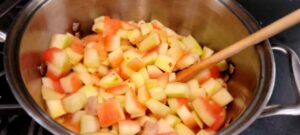
Place a pan on the stove and add brine solution in it and let it boil.
Add salt as the solution starts boiling.
Add whole black pepper, allspice, chili flakes, and paprika to the mixture and let it simmer at low heat.
Use grated ginger at this point and let it cook for a few more minutes for all the flavors to blend together.
Now add the rind to the mixture and let it roll boil for a few minutes until the rinds become slightly translucent.
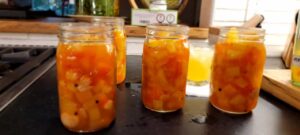
After 3 to 4 minutes of boiling turn off the stove and let it cool.
Make sure not to stir it excessively as the rind could break them and will spoil the texture.
How to Preserve
There are two options of preserving this pickle, canning or refrigerating.
Canning
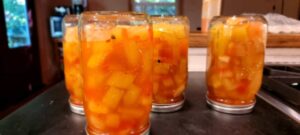
Take some sterilized glass jars. Make sure that the jars are completely dry. Add hot pickle in those jars leaving about an inch of headspace. Seal the jars with sterilized lids and process them in a water bath canner for 10-15 minutes. Check your local resources for altitude-specific canning instructions to avoid any inconvenience. This method would work if you are looking for long-term preservation.
Refrigeration
If you prefer a quicker solution, store the cool pickled watermelon rinds in a clean, airtight container in the refrigerator. They will keep for several weeks.
Serving Suggestions
Pickled watermelon rinds are a flexible snack that can be eaten in a variety of ways:
As a sweet and tangy side dish.
Added to salads for a flavor and texture boost.
Served with cheese and crackers for a unique appetizer.
Chopped and used into relishes or salsas.
Conclusion
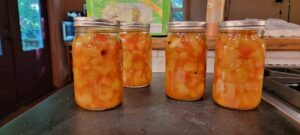
Pickling watermelon rinds is not only a tasty way to avoid food waste, but it also allows you to experiment with different flavors and spices. These pickles will lend a wonderful, sour bite to your culinary creations, whether you can them for long-term storage or refrigerate them for instant enjoyment. So, before you dump those watermelon rinds into the compost, give pickling a shot and enjoy a taste of summer all year.
ENJOY!!!
Disclaimer
The content provided on this website is purely for educational purposes. We are neither nutritionists nor do we intend to mislead our readers by providing any medical or scientific information.

